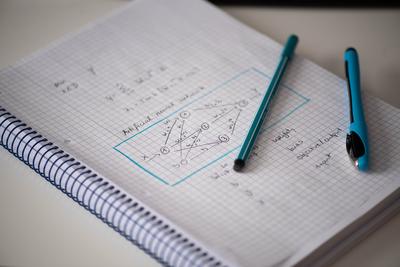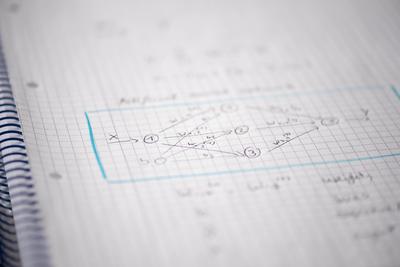Teaching
Our education goal is to prepare our students to become the next leaders in applying AI to academia and industry. A well-reasoned education plan is the basis for this, and we consider it a great opportunity to create a long-lasting positive social impact. AI is a critical skill for next-generation chemical engineers, but it is currently not sufficiently taught in many chemical engineering studies. For our education plan, we strongly consider the motivation and well-being of our students and the current and future needs of industry and research.
The goal is to not only train our students in theory and applications, but also to foster their critical thinking and emancipation. Additionally, we believe that intrinsic motivation of students for the course is a key factor for their learning outcome. Thus, we establish a culture of openness, mutual respect, and team spirit in our classes.

Courses
We are currently teaching multiple courses at Delft University of Technology.
-
Artificial Intelligence in (Bio)-Chemical Engineering (CH3112):
This elective course aims to introduce the concepts of artificial intelligence and machine learning and discuss the potential and limitations of different machine learning methods for given (bio)-chemical engineering applications. Moreover, a machine learning and deep learning framework will be introduced during the course with a hands-on practice. Cees Haringa is a co-teacher in this course.
-
Computational Practicum (CH3133):
Our research group organizes the mandatory 6 ECTS course 'Computational Practicum' for the first year of MSc in Chemical Engineering. The course covers computational and numerical concepts related to chemical engineering. Through theoretical lectures and practical tutorials, students will learn how to leverage computational tools and develop Python software to solve complex problems ranging from thermodynamics to reaction engineering, transport phenomena and material science. The course is co-supervised by Dr. Ir. Zoë Gromotka from the Delft Institute of Applied Mathematics.
-
Product & Process Design (PPD) (CH3803):
We are teaching a lecture on heat integration in the course Product & Process Design (PPD). We also supervise the corresponding assignment.
-
LO2:
We host a research project for a group of bachelor students for the Molecular Science and Technology program's lab course LO2. We convey important skills to our students regarding academic research and scientific report writing. Partecipants receive hands-on basic experience in developing AI models in Python.
-
LO1:
We oversee a research project for a group of bachelor students as part of the Molecular Science and Technology program's LO1 lab course. In this project, we equip students with essential skills in academic research and scientific report writing. Participants also gain practical experience in developing basic AI models using Python.
AI Minor for the Bachelor Programme at TU Delft
If you have an interest in creating AI-enabled solutions yourself, this minor is set up for you! It will provide you with a technical understanding of both the underlying data fed into the AI system and the algorithm running the AI system. You will also be acquainted with the limitations and ethical considerations of AI. You will get to know all the ins and outs of AI, be able to tune settings or implement specific AI algorithms in software, and learn what is ‘under the hood’ of the AI toolkit.
By completing this minor, you should be able to apply AI techniques, define AI problems and solutions in your field of expertise, and recognize the limits and failures of AI solutions applied to the field while learning how to mitigate them.
More information:
TU Delft Minors for Students
Engineering with AI Minor

Thesis supervision
We are actively looking for future bachelor students and master students who would like to conduct their thesis with us. Also, we regularly welcome visiting researchers and research interns in our group. Click here for more information.